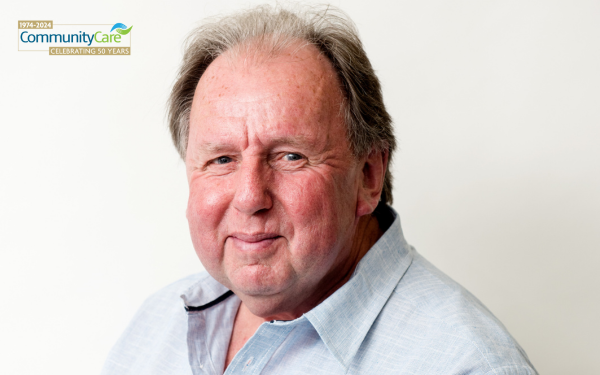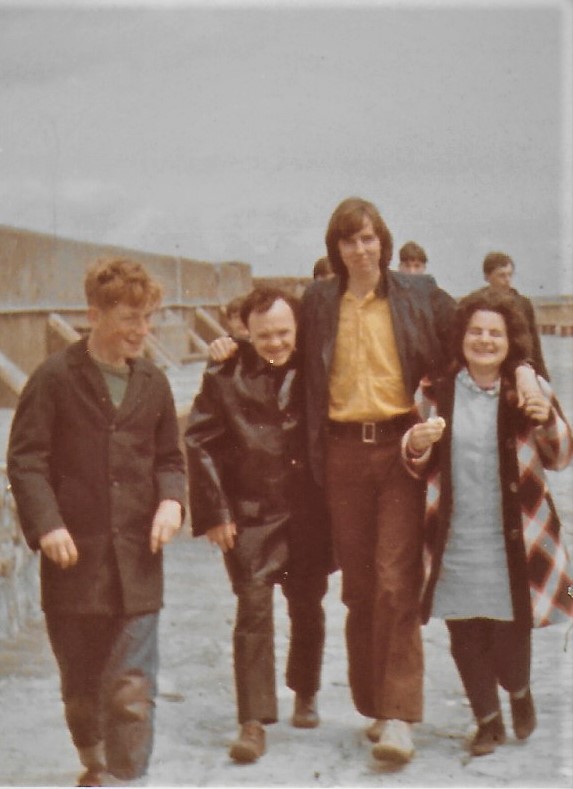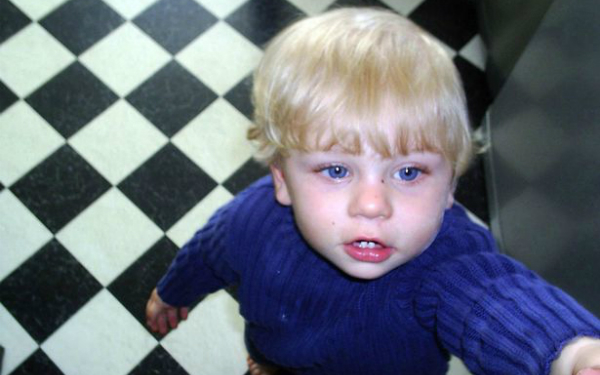
This article is part of a series of profiles of key figures who have shaped social work over the past five decades, to mark Community Care’s 50th anniversary. Previous interviewees include Brid Featherstone, David Howe, June Thoburn, Eileen Munro and Herbert Laming.
Few can boast a long career in social work these days.
Ray Jones, emeritus professor of social work at Kingston University, is one of the rare ones with more than 50 years of experience.
Since he qualified in 1972, he has seen the sector through many changes while wearing different hats: social worker, academic, director of social services, independent reviewer and, notably, the unofficial social work spokesperson on the Peter Connelly (Baby P) case.
He began his career at a time when, on the back of the 1968 Seebohm report, pre-existing welfare, children’s and mental health services had just been merged into unified social services departments in local authorities.
From generic social work to ‘fragmentation’
Jones, like other practitioners, became a ‘generic social worker’, handling a caseload across all ages and needs – a time he recalls wistfully, and one he wishes we’d return to.
“The reality we have now […] is services that are specialised, fragmented, segregated and separate,” he tells me.
“In 1972, we knew what was going on in the community. We weren’t handing over cases between workers when different needs arose. We stuck with people and worked within their communities with other professionals – schools, GPs, health visitors, district nurses, police officers. I feel we’ve lost that to some extent now by the fragmentation.”
As Jones recounted in a separate article for Community Care’s 50th anniversary, the splitting apart of adults’ and children’s services started in the 1980s, culminating in the creation of two departments, in England, through the Children Act 2004.
‘We lose trust with too many handovers’

Ray Jones in the 1970s as a newly qualified social worker
However, that fragmentation of services extends beyond this split to the way children’s services, in particular, is organised, he says
Today, children can be passed between referral and assessment, child in need, child protection, children in care, adoption and leaving care teams.
It is something he observed in his 2023 review of Northern Ireland’s children’s services, where he highlighted that a lesson for all practitioners in the UK is the need for continuity and stability for children and families.
“I was working it out and, as a child, within a period of a year to 18 months, you could move between three to four teams. That is three to four different workers, assuming the workers within the teams don’t also change,” says Jones.
He tells me of a young person who’s had 12-13 social workers in the past two years and is currently undergoing another change.
“We’re a relationship-based profession wanting to be close to people, and we can’t do that if we have all these handovers, all this fragmentation,” he says.
“We lose the relationship and the trust, but we also lose something else – the history; the knowledge of what’s happened to a person in their recent life. We lose that journey. We’re a short-term interjection, and then we disappear and someone else interjects.”
Standing besides people in times of need
A social worker, as he puts it, should not be the one with all the answers or specialist knowledge, but someone who stands beside people in times of difficulty and engages them, helping to “create some space to see a way forward”.
He sees these as human and professional qualities that do not require specialisation. When the need arises for specialist knowledge – “say to assist someone with chronic anxiety” – he advocates bringing in an expert to work alongside the practitioner, rather than handing over the case entirely.
Jones recalls his teams at Wiltshire council, where he was a director of social services in the 1990s, as an example.
“We had multidisciplinary groups, but we would have key workers. They would be the person who would stay with the family, child or adult. Other workers might come in and do bits of activity, add expertise and knowledge, but we would have someone to anchor the person.”
If it were up to him, children’s social services would comprise only a “short-term” initial assessment team, followed by longer-term teams embedded within communities “that stuck beside the person”.
“It would bring the focus back to the community. [Practitioners would] know what’s happening in people’s lives [and] their life story, but also know about the communities they’re living in and the impact it has on them.”
A less experienced workforce
Jones served as Wiltshire’s director of social services for 14 years, starting from 1992, a tenure that was common then but rare today.
As of March 2024, the average director of children’s services (DCS) had been in post for less than three years (33 months). The rapid turnover within the workforce – including social workers and managers up to directors – has, in Jones’ view, created an environment “unstable to be building practice skills within”.
“To an extent, we have a less experienced workforce than we have had in the past, including the leadership,” he adds.
“It’s really difficult to build up a strong base of competence and confidence when you’re not around for that long, or when the people around you aren’t around that long.”
‘Change takes time’
“It’s a difficult job,” says Jones about the role of a director.
“There’s a lot of public and media exposure. You’re working in a political environment, both locally and nationally, which is unsympathetic and unsupportive of the work that we’re doing. There’s a lot of blame culture and stress.”
Yet it might be the expectation of change tied to the role that is partly to blame, he says. Directors arrive with new promises and plans, but are unable to see them through in their short tenures, leaving them burnt out.
“We need to recognise that building a culture within organisations takes time. It’s not a job that you can crack in two or three years. You need at least seven or eight to make a difference. But if you can stay beyond that, that’s even better.”
Celebrate those who’ve inspired you
For our 50th anniversary, we’re expanding our My Brilliant Colleague series to include anyone who has inspired you in your career – whether current or former colleagues, managers, students, lecturers, mentors or prominent past or present sector figures whom you have admired from afar.
Nominate your colleague or social work inspiration by either:
- Filling in our nominations form with a letter or a few paragraphs (100-250 words) explaining how and why the person has inspired you.
- Or sending a voice note of up to 90 seconds to +447887865218, including your and the nominee’s names and roles.
If you have any questions, email our community journalist, Anastasia Koutsounia, at anastasia.koutsounia@markallengroup.com
During his time as a director, Jones recalls leaders staying long enough to witness “the consequences of what they were introducing”.
In contrast, recent years have been marked by a quick-fix culture that has made it difficult to build stability, he says.
“At the moment there are too many distractions and everything is too fast. It’s creating a lot of noise without, if you like, the progress that needs to be achieved to actually build stable organisations.”
Building relationships with journalists
An inescapable lesson Jones had to learn as a director was also how to handle media attention. In social work, child deaths or older people wandering off from care homes are sometimes unavoidable, he says.
In those cases, alongside being beside his colleagues to “provide a bit of space and protection for them”, he also took on the media attention through relationships built with local journalists.
“[The media] was handled by me, not some communications officer who didn’t understand the things we needed to talk about. When something awful happened, I had a relationship with the journalist and was able to engage with them.”
‘A spokesperson for social work’

Peter Connelly, who died in Haringey, August 2007
This decade-long dance with the media proved vital when the story of Baby P broke years later.
It’s difficult to talk about Jones’ career and not mention Peter Connelly, the child whose death in 2007, and the subsequent coverage of it in 2008, has permanently marked social work’s history.
Amid the media storm and relentless targeting of practitioners that ensued, Jones – then a professor at Kingston University – became social work’s spokesperson, appearing on various channels and in newspapers to correct the narrative.
Later, in 2014, he also wrote a book, ‘The story of Baby P: Setting the record straight’.
A more risk-averse culture
The case brought an intense period of public condemnation for the sector and a sharp rise in the annual number of care proceedings, with the number of care applications seeing a 70% rise between 2008-9 and 2012-13 linked to a risk-averse culture that, Jones argues, has yet to ease.
The decade of austerity ushered in by the coalition government in 2010 did not help the sector get back on its feet either.
“We had the double-whammy of the media slam in 2008, and then the government withdrawing resources from us and the families,” says Jones.
“It has made it very difficult to do the work we need to do. We’ve remained largely focused on risk assessment and management, and the job has gotten more difficult. The exposure has increased but the opportunity to do what we need to do has been even more restricted [due to a lack of resources].”
However, despite the hardships, Jones’s belief in the sector remains unwavering. He affirms that what social workers do is “as important now as it’s ever been”.
His parting advice: “We don’t have the resources, but let’s try and calm it down and stick with the job, rather than churning it up as often as we do at the moment.”
Share your story
 Picture: daliu/fotolia
Picture: daliu/fotolia
Would you like to write about a day in your life as a social worker? Do you have any stories, reflections or experiences from working in social work that you’d like to share or write about?
If so, email our community journalist, Anastasia Koutsounia, at anastasia.koutsounia@markallengroup.com




 Bournemouth, Christchurch and Poole
Bournemouth, Christchurch and Poole  Hampshire County Council
Hampshire County Council  Oxfordshire County Council
Oxfordshire County Council  South Gloucestershire Council
South Gloucestershire Council  Wokingham Borough Council
Wokingham Borough Council  Webinar: building a practice framework with the influence of practitioner voice
Webinar: building a practice framework with the influence of practitioner voice  ‘They don’t have to retell their story’: building long-lasting relationships with children and young people
‘They don’t have to retell their story’: building long-lasting relationships with children and young people  Podcast: returning to social work after becoming a first-time parent
Podcast: returning to social work after becoming a first-time parent  How managers are inspiring social workers to progress in their careers
How managers are inspiring social workers to progress in their careers  Workforce Insights – showcasing a selection of the sector’s top recruiters
Workforce Insights – showcasing a selection of the sector’s top recruiters 

 Facebook
Facebook X
X LinkedIn
LinkedIn Instagram
Instagram
Thankyou to Ray Jones.
I once arranged for Ray to travel down to my Local Authority in the South West to talk to a group of social workers about the Baby P case. Despite being unable to fund the talk or even the travel- Ray still agreed to travel down free of charge.
His talk very much connected social workers to why we do what we do- not ticking boxes, but the deeper meaningful values led reasons.
Change happens at varying speeds and in today’s world the significance of s172 ~ s174-s177 of the Company’s Act 2006 has as much significance as other welfare legislation and especially in light of the MacAlister Review.
The promissory futures for children and the direction of travel for Children’s Services is now cast within commercial terms ~ not least because of the racketeering (the actually correct term) of largely out-going Director’s of Children’s Services ~ the child gets lost in arrangements.
Arrangements that create the potential for a new generation of ‘Rag Nymph’ scenarios. Let’s not forget about the dark side of Care Services tied into the ‘night-economy’ of which many Cllrs, and notable others, across the country have played their part in.
Basic due diligence despite the myriad of governance structures remains woefully inadequate.
In doing my Social work degree at Kingston University, it was a absolute honour to attend a lecture conducted by Mr Jones to discuss Children’s Services and the story so far in relation to baby P. Very insightful and still have the learning in mind as a practitioner. Thank you for your dedication to Social Work.
Come on guys. Prof Jones handling of the impact of the media coverage applies, in then real time, for sure but at a level of generality divorced from the particular and merely negates the negated and failing to force full disclosure of the facts; it’s a void against void argumentation.
The economic syndication of the financial and professional interests, and the impact this has on policy implementation is where the dialectical synthesis is to be made.
BASW held important sway within Oxford Brooks University and their commission with the National Treatment Agency, arising from their steer within, then Gov, on Tackling Drugs and Primary Care led Commissioning ie policy level influence. And, were champions of the Independent Social Worker with internal interests, led by an active membership, keen on securing market growth in such in anticipation of the association being ‘the home of registration and the college’ Indeed, as with Josh MacAlister MP, some members ushered-in to parliamentary posts.
At the level of ‘the particular’ higher moral stances and generalities collapse. The economics have never been published: from 1997 there was a 45% real increase in spending with a £670m transfer between the then, DHSC and DLGC. And, this is in addition to the Supporting People and Tackling Drugs allocations from the ODPM.
Ed Balls, then, SofS for Education also promised to publish the spend. He never did.
For sure, the Murdoch’s had their dirty hands all over this, and Prof Jones exposed such, but there’s more to it ~ the current mess facing Council’s, and the recent illustration of overspend within CT’s, is seated in the murky spend pictures made via Departmental Expenditure Limits Transfers without public debate. And, crucially without public consent.
Moral panics and public outrage is a rather neat get out of jail card ~ greater transparency, then, meant to be assured by the FOIA is, now, stifled and curtailed of the very instrument for transparency,the FOIA, to restrict open democracy, tearing apart the relationship between responsibility and accountabilities.
The relationship between the particular and the levels of generalities of a universal services obligation show up all over: specialism v generic training, agency v permanent staff, qualified v unqualified and (dare I say it) so on and so on (Zizek).
Here’s the rub: All NHS and Social Services legislation has since the 1970’s been a derogation of EU/EC competencies ~ it’s dry and detailed reading ~ Brexit brought an end to this whether ‘we’ like it or not. The in-fighting created by internal markets and the slow burn removal of State Liabilities, especially at the level of ‘the Council’ across all vulnerable populations is now being felt, again!
The legacy of Prof Jones, and others, is the collective memory of ‘a social service’s’ accepted by and rooted in the communities they serve.
Council’s have a simple job. To become ‘Local Authorities’ again.
data sources: DE00000482956 (letter from pps on behalf of Andy Burham) and Prof Gerald Wistow, On Collaboration and Cooperation between LocGov/NHS, LSE.
Thank you Ray for your relentless championship of Social Work and as usual, inspiring and empathetic. Always enjoy your inspiring lectures and the occasional chat. Thank you for being you and a true professional.
An amazing career spanning 50 years, a true social work professional who always seems to hit the nail on the head, metaphorically speaking. Thank you for your dedication, empathy and understanding. I always enjoy your presentations filled with wisdom peppered with humour.